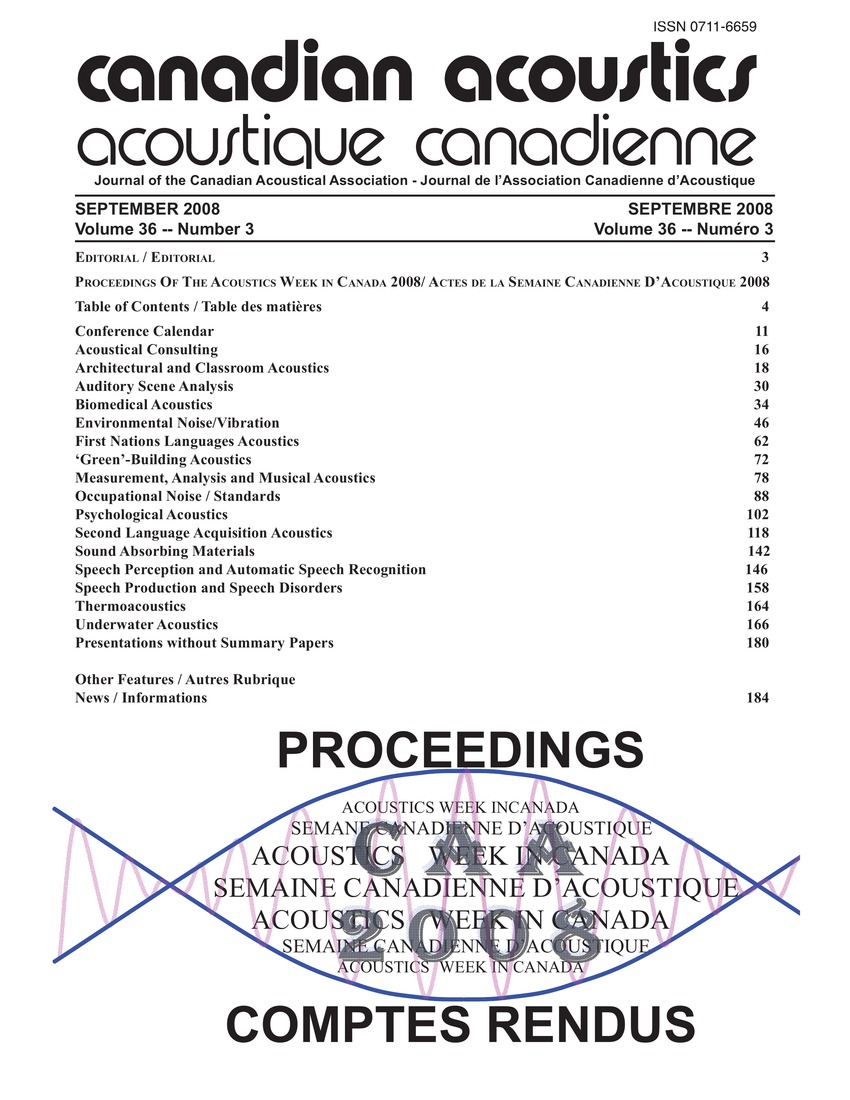Effects of emotional content and emotional voice on speech intelligibility in younger and older adults
Mots-clés :
Electroacoustic transducers, Speech, Normal hearings, Older adults, Positive correlations, SNR thresholds, Visual conditions, Young adultsRésumé
The effects of emotional content and emotional voice on speech intelligibility in younger and older adults was investigated. Twenty-eight younger adults with good health and clinically normal hearing thresholds in the speech range were tested. The stimuli used were the 200 sentences from the NU6 lists. The stimuli were presented to one group visually as text on paper, and to two groups auditorally, through two loudspeakers in a sound-attenuating booth. Means were obtained for both valence and arousal ratings for all three groups. The SNR threshold data were collected on young adults with normal hearing by Richard Wilson and colleagues using the female voice. Analyses revealed a significant positive correlation between valence and arousal for participants in the visual condition. The results indicated that the emotional arousal of listeners to a particular word can affect intelligibility, depending on the modality of presentation.Fichiers supplémentaires
Publié-e
Comment citer
Numéro
Rubrique
Licence
Author Licensing Addendum
This Licensing Addendum ("Addendum") is entered into between the undersigned Author(s) and Canadian Acoustics journal published by the Canadian Acoustical Association (hereinafter referred to as the "Publisher"). The Author(s) and the Publisher agree as follows:
-
Retained Rights: The Author(s) retain(s) the following rights:
- The right to reproduce, distribute, and publicly display the Work on the Author's personal website or the website of the Author's institution.
- The right to use the Work in the Author's teaching activities and presentations.
- The right to include the Work in a compilation for the Author's personal use, not for sale.
-
Grant of License: The Author(s) grant(s) to the Publisher a worldwide exclusive license to publish, reproduce, distribute, and display the Work in Canadian Acoustics and any other formats and media deemed appropriate by the Publisher.
-
Attribution: The Publisher agrees to include proper attribution to the Author(s) in all publications and reproductions of the Work.
-
No Conflict: This Addendum is intended to be in harmony with, and not in conflict with, the terms and conditions of the original agreement entered into between the Author(s) and the Publisher.
-
Copyright Clause: Copyright on articles is held by the Author(s). The corresponding Author has the right to grant on behalf of all Authors and does grant on behalf of all Authors, a worldwide exclusive license to the Publisher and its licensees in perpetuity, in all forms, formats, and media (whether known now or created in the future), including but not limited to the rights to publish, reproduce, distribute, display, store, translate, create adaptations, reprints, include within collections, and create summaries, extracts, and/or abstracts of the Contribution.


